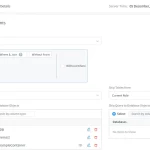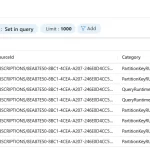
Organizations using MariaDB must comply with strict standards such as GDPR, HIPAA, PCI DSS, and SOX. These frameworks require consistent protection of sensitive data, transparent audit processes, and robust governance controls. Failure to comply can result in financial penalties, reputational harm, and operational disruption, making proactive compliance management critical.
Beyond regulatory mandates, businesses are encouraged to follow security best practices outlined in the NIST Cybersecurity Framework and the ISO/IEC 27001 standard. These benchmarks provide structured approaches to risk management and data protection, complementing the compliance landscape for MariaDB users.
This article explores how MariaDB supports compliance natively through access control, encryption, and auditing, and how DataSunrise strengthens these efforts with centralized monitoring, data discovery, masking, and automated policy enforcement.
Importance of Data Compliance
Data compliance is not just about meeting legal obligations—it is a cornerstone of trust between organizations and their customers. Protecting sensitive information such as personal, financial, or healthcare records ensures that businesses maintain credibility and avoid damaging incidents.
For MariaDB users, the importance of compliance extends to:
- Regulatory adherence: Staying aligned with global and regional standards like GDPR, HIPAA, and SOX.
- Operational resilience: Minimizing the risk of breaches or unauthorized access that could disrupt services.
- Customer trust: Demonstrating responsible data stewardship to clients and stakeholders.
- Competitive advantage: Companies that prioritize compliance can differentiate themselves in industries where data protection is a priority.
By combining MariaDB’s native features with enhanced governance through DataSunrise Database Security, organizations create a security posture that goes beyond meeting minimum requirements and actively safeguards long-term business growth.
Native MariaDB Compliance Features
MariaDB includes foundational features that help with compliance. These can be configured directly in the database and tailored to meet specific industry or regulatory requirements.
Access Control and Roles
Access control ensures that only authorized users can interact with sensitive data. Administrators can create roles, assign privileges, and revoke permissions when no longer needed.
-- Create a role with read-only privileges for auditors
CREATE ROLE compliance_reader;
GRANT SELECT ON finance.transactions TO compliance_reader;
GRANT compliance_reader TO 'auditor'@'localhost';
Learn more about Database Access Control.
Encryption
MariaDB provides encryption both at rest and in transit. Encryption at rest protects data stored in tablespaces, while encryption in transit secures communication between clients and the server.
-- Enable table encryption globally
SET GLOBAL innodb_encrypt_tables = ON;
-- Create an encrypted table
CREATE TABLE patient_records (
id INT PRIMARY KEY,
name VARCHAR(100),
diagnosis TEXT
) ENCRYPTED=YES;
# In my.cnf configuration file
[mysqld]
ssl-ca = /etc/mysql/certs/ca.pem
ssl-cert = /etc/mysql/certs/server-cert.pem
ssl-key = /etc/mysql/certs/server-key.pem
For additional information, see Database Encryption.
Audit Plugin
The MariaDB Audit Plugin tracks database events such as login attempts, query execution, and schema modifications. This is essential for demonstrating accountability during compliance audits.
-- Install and enable the audit plugin
INSTALL SONAME 'server_audit';
-- Configure logging to file
SET GLOBAL server_audit_logging = ON;
SET GLOBAL server_audit_events = 'CONNECT,QUERY,TABLE';
SET GLOBAL server_audit_output_type = 'FILE';
SET GLOBAL server_audit_file_path = '/var/log/mariadb_audit.log';
See how Database Audit Trail enhances compliance.
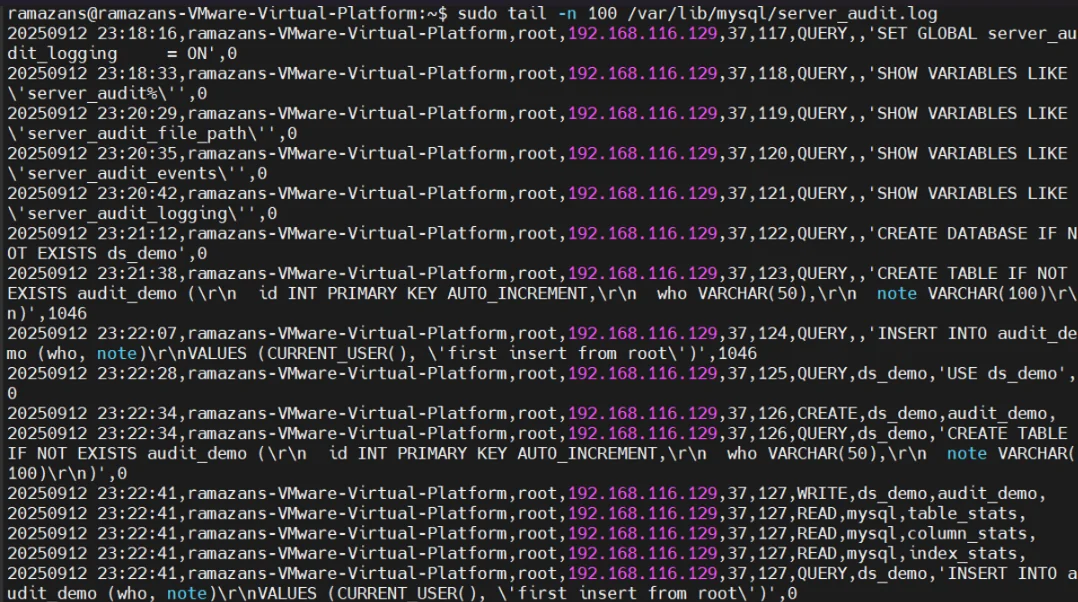
Fine-Grained Logging
For tighter compliance, organizations may require detailed logging by user, host, or database object. MariaDB supports this through flexible filtering.
-- Exclude a user from audit logging
SET GLOBAL server_audit_excl_users = 'app_user';
-- Include only certain events for a DBA user
SET GLOBAL server_audit_incl_users = 'dba_user';
SET GLOBAL server_audit_events = 'QUERY,CONNECT';
Explore more about Database Activity Monitoring.
Data Compliance with DataSunrise
While MariaDB offers solid compliance primitives, most organizations need centralized governance and automation across multiple environments. This is where DataSunrise complements MariaDB.
Sensitive Data Discovery
Data Discovery in DataSunrise automatically scans MariaDB databases to detect sensitive information such as PII, PHI, and payment card data. Its detection engine uses pattern matching, contextual analysis, and even OCR for unstructured records.
This ensures hidden or overlooked datasets are identified before they pose compliance risks, giving administrators full visibility into their data landscape.
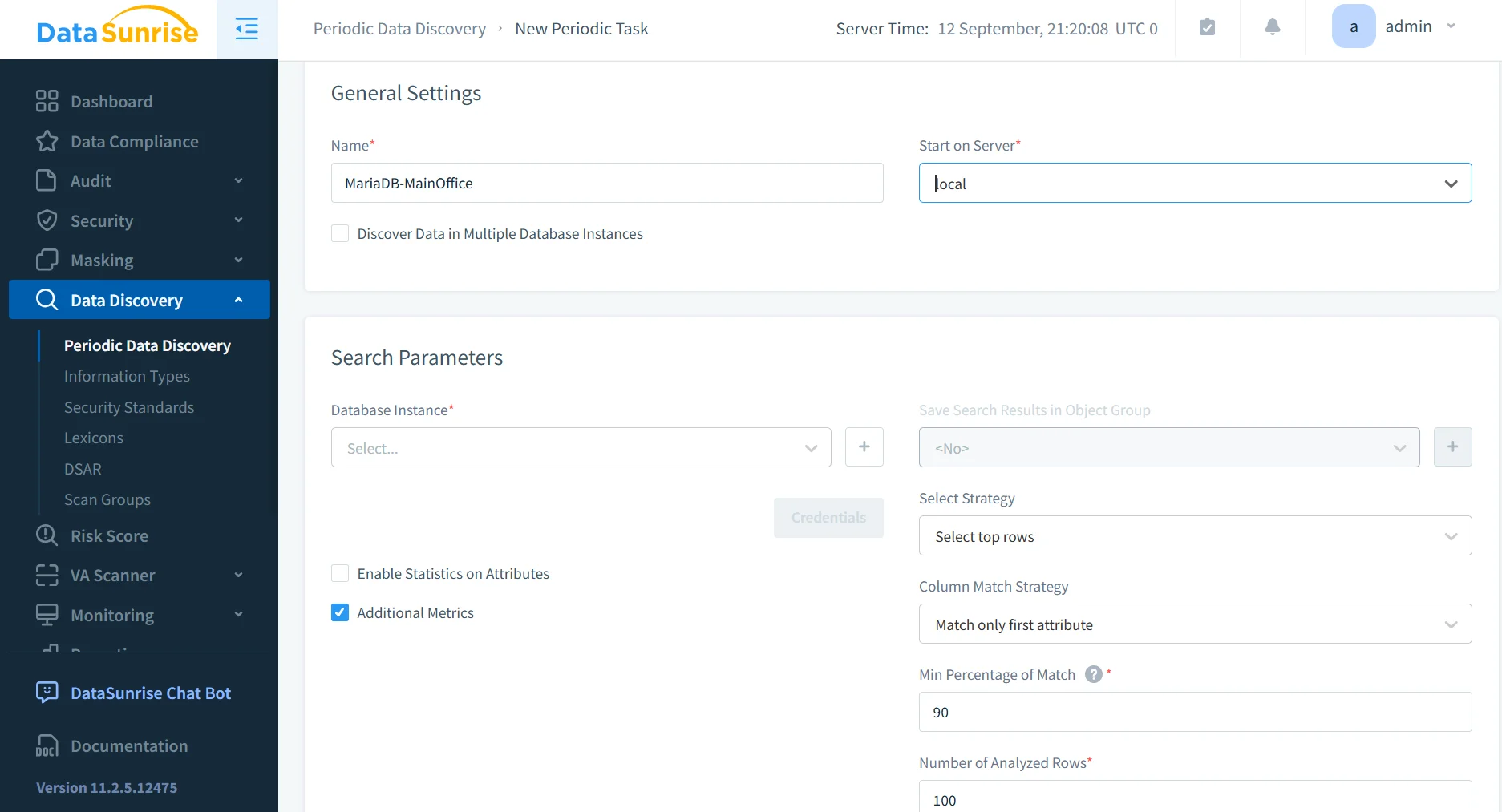
Dynamic and Static Masking
Data Masking is a key compliance safeguard, allowing organizations to protect sensitive values while preserving data usability.
- Dynamic Masking: Sensitive fields are masked in real time during query execution, ensuring users see only what they are authorized to access without modifying the actual data in storage.
- Static Masking: A de-identified dataset is generated for use in development, testing, or analytics environments, keeping real production data secure.
Both methods support compliance with GDPR and HIPAA by implementing data minimization principles. Learn more about Dynamic Data Masking and Static Data Masking.
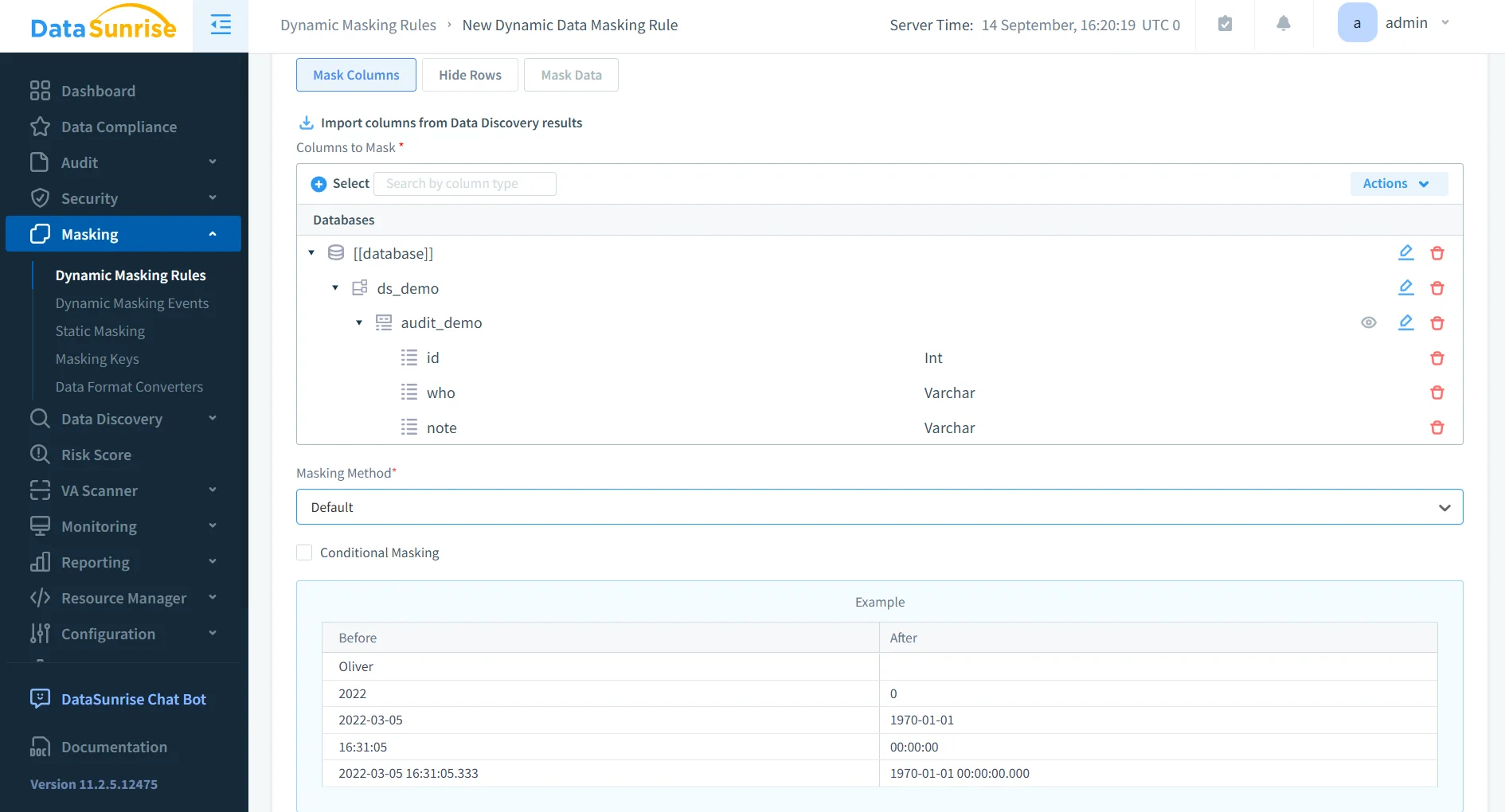
Compliance Autopilot
The Compliance Autopilot reduces manual effort by continuously aligning MariaDB configurations with evolving frameworks such as GDPR, HIPAA, PCI DSS, and SOX.
Key features include:
- Automatic enforcement of compliance rules when new users, roles, or database objects are created.
- Continuous monitoring for compliance drift and corrective adjustments in real time.
- Predefined policy templates that reduce setup time.
- Audit-ready reporting that simplifies external inspections.
Unlike manual methods, Autopilot ensures policies remain active and adapts as regulations change. Explore more about Compliance Automation.
Centralized Monitoring
Instead of monitoring each MariaDB instance separately, DataSunrise provides Centralized Monitoring.
Capabilities include:
- Consolidated activity logs across MariaDB and 40+ other platforms.
- Cross-database policy enforcement from a single dashboard.
- Unified alerts to detect suspicious queries or mass exports.
- Streamlined compliance reviews for distributed infrastructures.
Centralized Monitoring integrates with SIEM tools to extend protection. Learn more about Database Security Solutions.
Business Impact of MariaDB Compliance Management
Organizations that deploy both MariaDB native features and DataSunrise gain stronger compliance posture and operational efficiency.
| Business Need | Native MariaDB | DataSunrise Extension |
|---|---|---|
| Access Controls | User roles and privileges | Granular masking, policy rules across multiple DBMS |
| Auditing | Audit Plugin logs | Real-time monitoring and centralized dashboards |
| Encryption | Tablespace & TLS | Extended policy validation and compliance drift detection |
| Reporting | Manual log analysis | Automated, audit-ready compliance reports |
| Sensitive Data | Manual checks required | Automated discovery of PII, PHI, and payment data |
| Data Masking | Not natively available | Dynamic and static masking for compliance and testing |
See the full scope of Data Compliance and its impact on modern enterprises.
Conclusion
Managing data compliance for MariaDB is about creating visibility, enforcing access control, and keeping pace with evolving regulations. Native features provide a strong baseline, but platforms like DataSunrise deliver automation, monitoring, discovery, and masking across enterprise data ecosystems.
Together, they help organizations avoid costly penalties, improve transparency, and maintain customer trust.
For further reading, explore Database Activity History, Regulatory Compliance, and Data Security Posture Management.
Protect Your Data with DataSunrise
Secure your data across every layer with DataSunrise. Detect threats in real time with Activity Monitoring, Data Masking, and Database Firewall. Enforce Data Compliance, discover sensitive data, and protect workloads across 50+ supported cloud, on-prem, and AI system data source integrations.
Start protecting your critical data today
